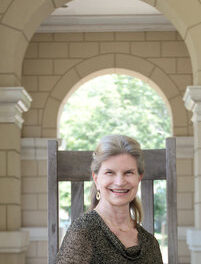The UNCG’s Recital Hall is an ideal venue for the give-and-take between musicians in the Rice Toyota Sitkovetsky and Friends Chamber of Music Series. The sense of musical “family or friendships” was heightened for this concert by the presence of violinist Jamie Laredo and cellist Sharon Robinson, soloists for the Greensboro Symphony Orchestra‘s current Masterworks series. Maestro Dmitri Sitkovetsky traced his 41-year friendship with the couple to their joint appearance on the 1979 Spoleto Festival USA’s famous chamber music series. This imaginative program paired the beloved String Octet of Mendelssohn, which had been played on that Spoleto series, with a work by Erwin Schulhoff, one of the whole generation of composers killed by the Nazis.
Czech composer and pianist Schulhoff was born in May 8, 1894, in Prague and died in the Wülzbourg Concentration Camp on August 18, 1942, from tuberculosis. Among his teachers were Max Reger and Claude Debussy. He was influenced by the microtonality of Alois Hába along with the nationalist adaptations of Leos Janácek and, most especially, jazz.
Schulhoff’s Duo for Violin and Cello (1925), which opened this evening’s concert, proved to be a spectacular tour-de-force for both players and well worthy of standing alongside the duos of Ravel and Kodály. Its four movements are a Moderato, featuring free use of folk-like elements, a pulsing Zingaresca (gypsy-like), a melodically rich Andantino, and an intensely driving Finale. The opening melodic motif is brought back at the beginning of the finale.
Laredo and Robinson pulled out all the stops of string technique as they created a full spectrum of dynamics from ffff to almost ethereal pppp! About half way through the first movement and again at its conclusion, each in turn scaled down to floating, hushed, eerie high harmonics. Along the way they dug into the strings and reveled as their parts supported or were set against each other. Laredo’s violin seemed to give off sparks as he tossed off a plethora of rapid and varied pizzicatos in the second movement while Robinson brought plenty of rich low tone as well as fireworks from her strings. Beside its gorgeous romantic melody, the highlight of the third movement was Laredo and Robinson alternating of playing legato to the others’ pizzicatos. Both interwove their melodic lines beautifully in the Finale’s opening before unleashing everything – rapid bowing and resonant, plucked strings – for a driving, galloping end.
The glorious String Octet in E-flat, Op. 20, by the sixteen-year-old Felix Mendelssohn (1809-47), is essentially a work for double string quartets and is popularly programed at music festivals when two quartets are visiting. Each player has an important role in addition to doubling with his instrument’s colleague(s). It is true chamber music – not like a string chamber orchestra. It is written in four movements: Allegro moderato ma con fuoco, Andante, Scherzo: Allegro leggierissimo, and Presto.
Sitkovetsky drew from the GSO to fill out the chairs with Laredo, first violin, Sitkovetsky, second, Eric Koontz, viola, and Robinson, cello. The other group was led by concertmistress Marjorie Bagley, with Stephanie Ezerman, second violin, Simon Ertz, viola, and principal cellist Alexander Ezerman. The soaring first movement was dramatic and richly textured with Laredo’s brilliant playing set against delightful pairings or resonant pizzicatos from violas and cellos. The mellow second movement juxtaposed darker hued violas and cellos against the violins to wonderful harmonic effect. Mendelssohn told Fanny that the scherzo was inspired by lines from the Walpurgis episode of Goethe’s Faust; I always imagine fairies when I hear the hushed and fleet gossamer strings which came off to breath taking effect. The finale came off superbly, with luxuriant playing and every element of the contrapuntal section crystal clear. This was a superlative evening of chamber music.
Music lovers interested in Schulhoff should seek out Nimbus CD NI 5702 Forbidden Music. It has his Duo and Sonata for Solo Violin along with works by Gideon Klein and Hans Krása played by violinist Daniel Hope, violist Philip Dukes, and cellist Paul Watkins. Mendelssohn’s 1825 manuscript of the Octet can be explored on a Living Archive CD/DVD combining its performance by the Borromeo and Ariel String Quartets with its score.











